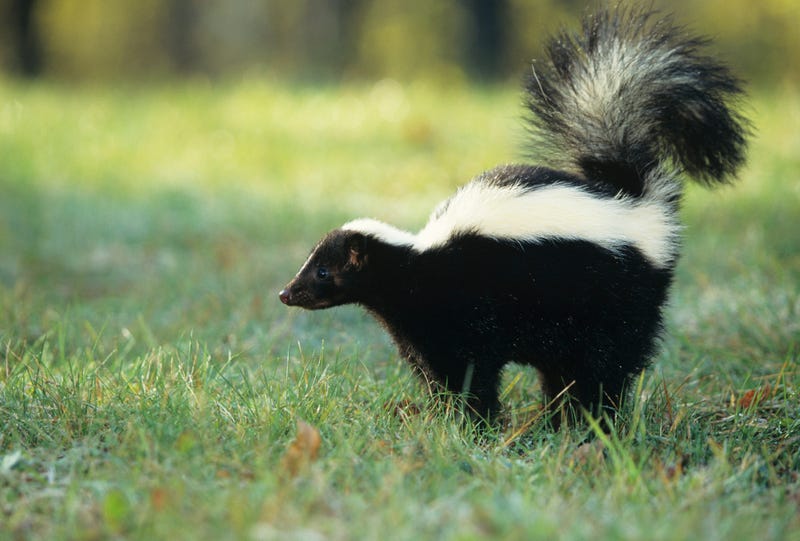
MACOMB COUNTY (WWJ) – State health officials have issued a warning about possible rabies exposure in skunks bought and sold in Macomb and Lapeer Counties.
The Michigan Department of Health and Human Services said Wednesday anyone who bought skunks from Countryside Feather Farm/Rose’s Skunks in Attica, Mich. — or a seller in Chesterfield Twp./New Baltimore tied to the farm — in the last six months may have been exposed to rabies.
Officials say a skunk purchased from this breeder/seller tested positive for rabies last Wednesday. It is unknown how or when the animal was infected.
Based on a preliminary investigation by Macomb County Animal Control, “it is possible rehabilitated wild skunks were co-mingled with bred and captive skunks at the New Baltimore location.”
Michigan residents can possess skunks bred in captivity only through a permit issued by the Michigan Department of Natural Resources, according to MDHHS.
“In the State of Michigan, it is illegal to take, purchase or possess wild animals without proper permitting from the Michigan Department of Natural Resources,” said DNR Law Enforcement Chief Jason Haines. “Where skunks are concerned, it’s illegal to take them from the wild for purposes of rehabilitation or to import them from another state or country.”
The DNR is continuing to investigate with local authorities and other state agencies, including MDHHS and the Department of Agriculture and Rural Development.
MDHHS has attempted to reach purchasers based on records from the facilities and DNR permits, but “additional public notification is being conducted as rabies is fatal to humans and animals once they become ill with the disease,” MDHHS said in a press release.
As there is insufficient evidence on the effectiveness of rabies vaccine in skunks, anyone who has had the skunk they purchased vaccinated against rabies may still be at risk.
“If you have purchased one of these skunks from these facilities in the last six months, we are urging you to contact your veterinarian to have the animal examined. If you have interacted with a skunk from these facilities, we recommend you contact your health care provider or local health department about possible rabies exposure,” said Dr. Natasha Bagdasarian, chief medical executive.
Officials say it can take months for rabies to show up in skunks after they’re exposed. According to scientific literature, the incubation period for rabies in skunks can be several months.
Rabies is a viral disease of mammals transmitted through the bite, scratch or saliva of an infected animal. Bats and skunks are the most common carriers of rabies in Michigan. The strain of rabies identified in the skunk that tested positive has long been known to occur in southeast Michigan extending into the Thumb. Rabies is fatal to humans and animals. Post exposure treatment is given to people who are exposed to a potentially rabid animal to prevent rabies infection.
More information on rabies and how to protect yourself from exposure can be found on the MDHHS website.
